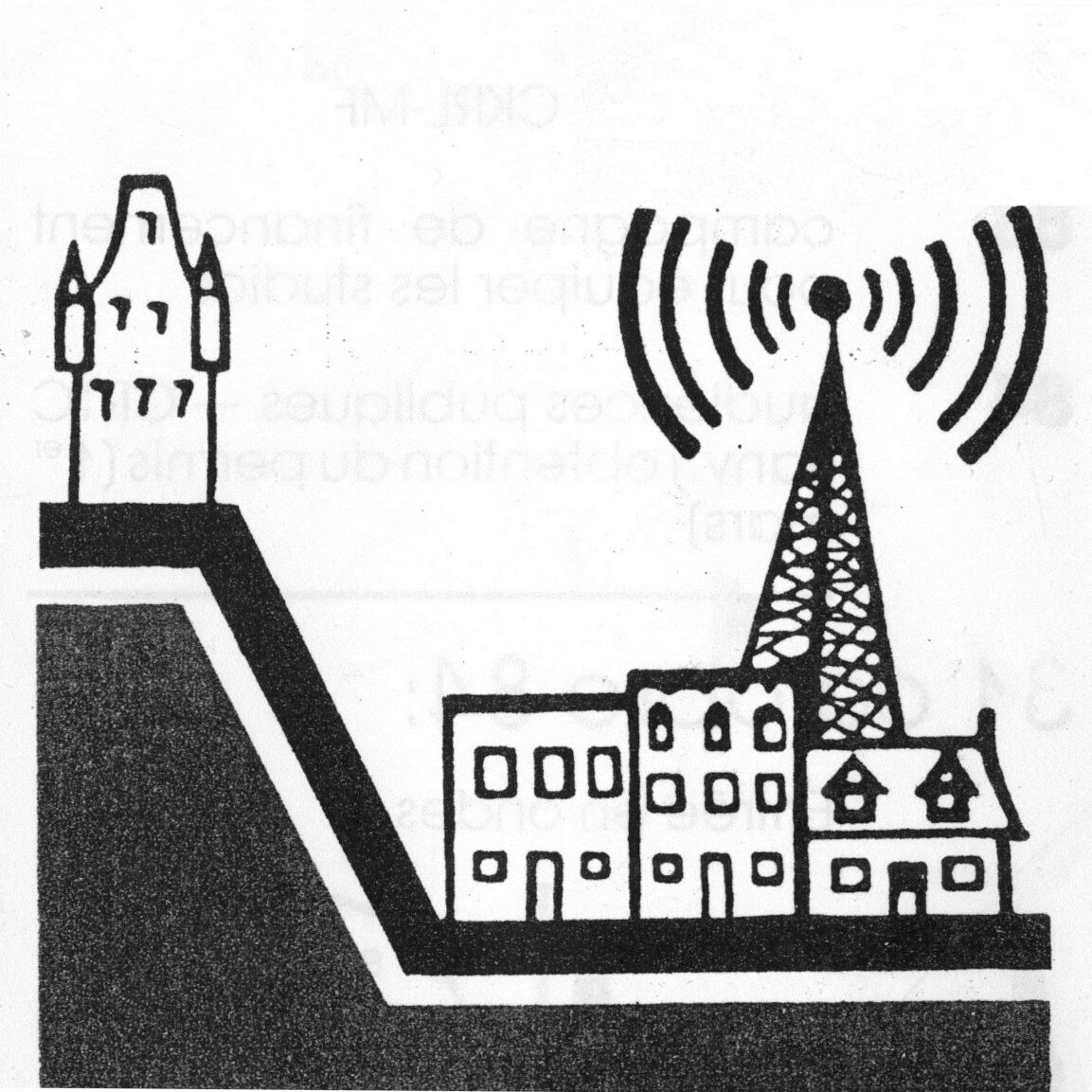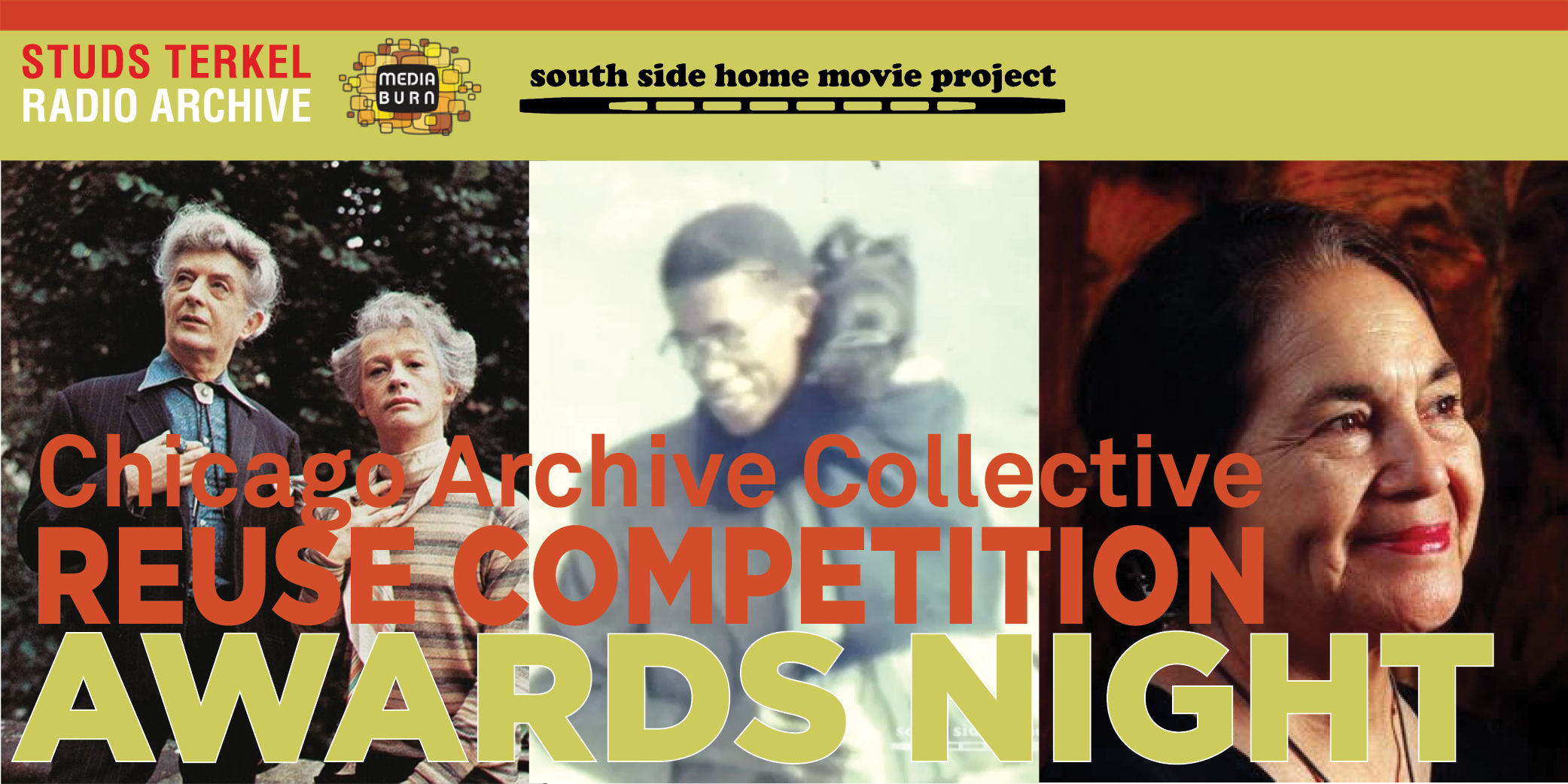On the occasion of the Remake Learning days, the Chicago Archive Collective reunite themselve under the scope of archives and for the re-use of archives. We were invited to activate archival material and to propose creative soundwork. From a dive into Studs Terkel’s archives, I attempt to trace the course of this archival reuse and oral history projet to invite other institutions to do the same.
If the joint effort of the radio station WFMT, the Chicago History Museum, and the Library of Congress led to the creation of the Studs Terkel Radio Archive, there are just as many projects to being conceived in different localities, in differents languages.
Abolitionist and social reformer Frederick Douglass said : “Agitate ! Agitate ! Agitate !.” With this reuse contest, it’s as if the Chicago Archive collective said : “Activate ! Activate ! Activate the archive!.”
*
Voici le résultat de ma participation au Studs Terkel Radio Archive Remix Contest!, une façon des plus pragmatiques pour faire en sorte que des archives soient exploitées.
*
We can heard Studs Terkel,
Talking about radio,
Chicago Radio,
But who was Studs Terkel ?
And what are the Studs Terkel Archives ?
There’s indeed a Studs Terkel Tradition.
Louis Terkel, known as Studs Terkel, was a radio host in Chicago for more than 40 years.
He made interviews with thousands of people, documenting ordinary lives, working lives of ordinary people from Chicago and around the world.
Terkel was pragmatic, combining theory and practice, as he said…
With his notorious number of interviews of various personalities that have made American History, Studs Terkel has been recognized as an oral historian on the long run.
On the occasion of the Remake Learning days, a collective reunite themselve under the scope of archives and for the re-use of archives. For the Chicago Archive Reuse Competition, this collective explained there raison d’être, which is essentially the use, the exploitation, of archives and the organisation of workshops to teach how to use archives. Here’s Sarah, one of the organiser,
In the spirit of a document of the early ninetees, named « Preservation without access is pointless » (1992/1993), Chicago Archive Collective recalled us the meaning of archives. As Anna Manson said…
And this is consistent with Terkel’s concern for collective memory. In an interview, he explained it as follows
By re-using archives, it is a way to fight against collective alzheimer’s disease.
As recall by Anna, a member of Chicago Archive Collective,
And this cultural job of saving archives is about History and the margins of history. This job, as recalled, is a political one,
The workshops aimed to teach the value of using archives for memory, social relations and community building. The generational aspect was mentioned,
As well as the methodology of oral history
Oral history is a subversive method that we have to keep on practicing as long as we are here on this earth ;
Well, let’s follow Studs Terkel tradition who did it brilliantly on radio*
Terkel have met various characters,
such as the first african-american female author to have a play performed on Broadway, Lorraine Hansberry. This Chicago-based playwright reflects about protest plays,
Lorraine Hansberry insists on what is important
And Terkel was able to elevate the conversation to the universal
Terkel as an oral historian had the need to meet people, he was curious of humankind.
He met Quentin Crisp, who came out of the closet, who did is « coming out » as gay in England in the 1930s.
The rest of Quentin Crisp life follow from his coming out, from the simple fact that he spoke about it.
And Terkel offers space for the interviewees to reflect, making it clear that he is nothing else than a recording device,
There’s a practice of opening a space with a microphone and questions
He opened a space nowhere else but in Chicago
Here’s the reverant George Morey talking about his relation to others people in the city
Terkel was a man who has gained the trust of the people of his city, he was a man of the public space, someone that shape the airwaves and the city of Chicago an interview at the time.
Studs Terkel had a vision of history, history from bottom up, and he was concern about collective memory…
The anonymous ones who made everything go..
Could we imagine that they are men and woman who grab the microphone in community radio,
those who are dedicated to meet the common people.
Is there as many oral historian as community radio producer who have invited local personalities and archives their own audio document ?
And could we image a Remake Learning Days in Québec, in various community radio ?
For that, we would need a Quebec Archives Collective.
but for the moment, we can thank for the Chicago Archive Collective, they have launch something and we are part of it.

